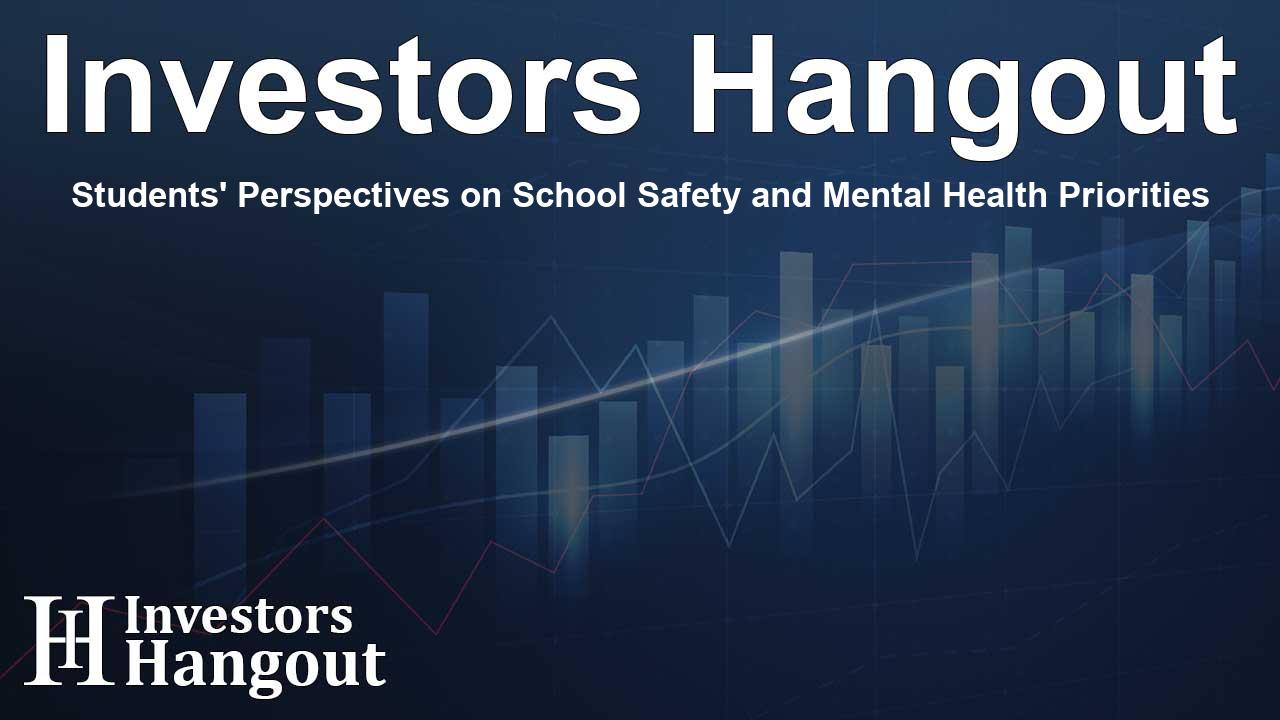Students' Perspectives on School Safety and Mental Health Priorities

Understanding Student Priorities in Education
Survey of 1,000 students finds families united on school priorities, even as national debates focus on divisive issues.
Recently, ParentsTogether released an enlightening report that emerges from a comprehensive national survey conducted among over 1,000 students between grades 6 and 12. This remarkable initiative, aimed to shed light on students' voices in the educational landscape, revealed pivotal insights about their safety, mental health, and a sense of belonging in schools. It comes at a time when societal debates often overlook the critical concerns held by these young individuals.
Key Findings of the National Survey
The survey outcomes spark important conversations and reveal whether students' real concerns align with popular media narratives. The disconnect between what is commonly discussed and what students prioritize informs educators, parents, and community leaders about the pressing issues in schools today.
Students Value Their School Experience
Interestingly, nearly 80% of students rated their school as "good" or "excellent," illustrating a strong appreciation for their educational environments. They highlighted positive aspects such as friendships, supportive faculty, and engaging extracurricular activities. Yet, when asked what improvements they sought, their responses focused on enhancing meals, strengthening anti-bullying measures, increasing mental health resources, and lessening academic stress.
Safety, Inclusion, and Mental Health
One of the survey's critical revelations is the overwhelming consensus among students about safety and belonging. A remarkable 86% of respondents stressed that every student should feel safe and included, regardless of gender identity. This statistic reflects a growing acknowledgment of diverse identities and the essential need for a welcoming educational atmosphere.
The Imperative for Change
The desire for enhanced daily experiences at school was evident, with close to half of the surveyed students advocating for better bullying prevention strategies and a reduction in stress from assessments and homework. Unlike the small percentages addressing cultural or curriculum changes, these requests highlight immediate, actionable areas for improvement.
Parents and Students: A Common Dialogue
Engagement between students and their families about critical school issues emerged as another theme in the findings. Over two-thirds of participants reported discussing anti-bullying policies with their parents, while 63% addressed mental health support. This open dialogue is crucial in fostering a collaborative approach to education.
Voices from the Panel Discussion
During a panel hosted at the National Press Club, student leaders from various organizations, including Kentucky Student Voices (KSVT) and Students Engaged in Advancing Texas (SEAT), discussed their perspectives, emphasizing the necessity of centering young voices in educational dialogues.
Empowering Students in Education
Cameron Samuels from SEAT articulated a sentiment shared among many students: "Students are the primary stakeholders in education and should hold influence in the decisions affecting us. This report reveals long-held concerns among the student body: effective solutions for enhancing youth mental health and preventing bullying are crucial. Our overdue investment in public schools could transform the educational landscape into a safe, inclusive environment that empowers students."
The Urgency of Stronger Mental Health Support
The survey highlighted the pressing issue of mental health resources within schools. A significant number of students expressed discomfort with the level of support available to them. It is clear that addressing these shortcomings should be a priority for school administrations and policymakers.
About Parents Together
ParentsTogether is a national, parent-led organization with over 2 million community members advocating for educational reforms that prioritize children's needs and well-being. The organization is dedicated to creating an equitable and nurturing environment for families across the nation.
Frequently Asked Questions
What were the main findings of the student survey?
The survey revealed that students prioritize mental health, safety, and supportive school environments based on their experiences.
How do students feel about their schools according to the survey?
Nearly 80% of students rated their schools as "good" or "excellent," appreciating aspects like friendships and supportive staff.
What issues do students want to see improved in schools?
Students indicated a desire for better bullying prevention, increased mental health support, and reduced academic stress.
How important is inclusivity and safety in schools?
The survey found that 86% of students believe every student should feel safe and included, regardless of gender identity.
What role do parents play in these discussions?
Parents are engaging in discussions about school policies and mental health, with over two-thirds of students reporting conversations at home.
About The Author
Contact Riley Hayes privately here. Or send an email with ATTN: Riley Hayes as the subject to contact@investorshangout.com.
About Investors Hangout
Investors Hangout is a leading online stock forum for financial discussion and learning, offering a wide range of free tools and resources. It draws in traders of all levels, who exchange market knowledge, investigate trading tactics, and keep an eye on industry developments in real time. Featuring financial articles, stock message boards, quotes, charts, company profiles, and live news updates. Through cooperative learning and a wealth of informational resources, it helps users from novices creating their first portfolios to experts honing their techniques. Join Investors Hangout today: https://investorshangout.com/
The content of this article is based on factual, publicly available information and does not represent legal, financial, or investment advice. Investors Hangout does not offer financial advice, and the author is not a licensed financial advisor. Consult a qualified advisor before making any financial or investment decisions based on this article. This article should not be considered advice to purchase, sell, or hold any securities or other investments. If any of the material provided here is inaccurate, please contact us for corrections.
